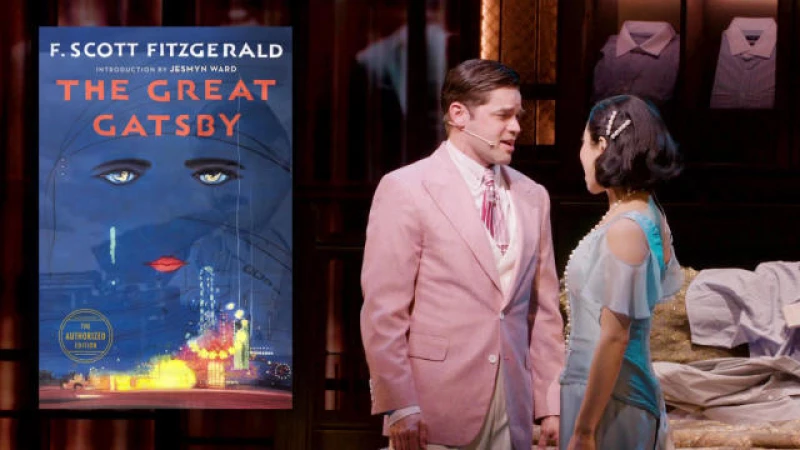For nearly four decades, United Airlines licensed George Gershwin's "Rhapsody in Blue" to be its musical identity. In 2020, however, Gershwin's jazzy classical classic fell out of the friendly skies – and landed in the public domain.
Which means, when the copyright expires, anyone is free to use and build upon that work. "No fees, no licenses, no tracking down the person who owns it, no permission," said Jennifer Jenkins, director of the Center for the Study of the Public Domain at Duke University Law School.
She said there are a lot of famous works that don't belong to their creators anymore – films like Charlie Chaplin's "The Circus," and Fritz Lang's "Metropolis," books like Ernest Hemingway's "The Sun Also Rises," and characters like Peter Pan, Dracula and Frankenstein. They're all now owned by us, the public, free for anyone to use to create something fresh.
Jenkins said, "The public domain doesn't represent the death of copyright. It's just the second part of copyright's life cycle."
The idea of placing an expiration date on intellectual property was actually included in the U.S. Constitution by the founding fathers, with the purpose of "promoting the progress of science and the useful arts." The decision on the duration of copyright terms was left to Congress to determine.
According to Jenkins, having copyright last indefinitely would create challenges for many creators who may fear copyright lawsuits while trying to produce their works.
"The Great Gatsby" by F. Scott Fitzgerald was published in 1925. Prior to 2021, anyone wishing to use elements from the novel, such as Robert Redford or Leonardo DiCaprio, had to seek permission from the Fitzgerald Estate, which held the copyright for 95 years.
Blake Hazard acknowledges that 95 years is a lengthy period, but she believes it is not excessive. "That's my personal opinion, and I am clearly biased," stated Hazard, who is Fitzgerald's great-granddaughter and a trustee of his estate.
When "Gatsby" entered the public domain in 2021, Hazard observed a wave of Gatsby-inspired projects ready to launch, including novels like "Nick," a prequel by Michael Farris Smith; "Beautiful Little Fools" by Jillian Cantor; and "The Chosen and the Beautiful" by Nghi Vo, each offering a unique retelling of the "Gatsby" story through different characters.
"I always hope there'll be some faithfulness, but we don't have any control over it," Hazard remarked. "So, we just have to kind of embrace that."
She's just been invited to a new post-copyright adaptation of her great-grandfather's work – a "Great Gatsby" musical which opens on Broadway this month. "I hope it's good!" she laughed.
The show's writer, Kait Kerrigan, said, "We didn't want to do something that was wildly different from the novel. We wanted to add perspective and layers to the novel."
The director Marc Bruni said, "Any group of artists is going to distill down a story through their own lens."
The truth is, most works aren't lucky enough to be economically viable for as long as F. Scott Fitzgerald's, or Ernest Hemingway's, or even Walt Disney's.
This year, "Steamboat Willie," which unleashed two of the most lucrative rodents in history, entered the public domain. To be clear, though, don't go using the modern Mickey or Minnie, because they're still under copyright; it's only the version as they first appeared that's fair game.
Still, as soon as those first copyrights expired, we got this: a Mickey slasher film, "Mickey's Mouse Trap." The same thing happened when A.A Milne's Winnie-the-Pooh entered the public domain: The very non-G-rated "Winnie-the-Pooh: Blood and Honey."
- "Steamboat Willie" horror film announced as Mickey Mouse enters public domain (Variety)
- Trailer for Mickey Mouse slasher film drops on same day "Steamboat Willie" character enters public domain (Hollywood Reporter)
It's those kinds of re-imaginations that many estates fear.
The Case of Sherlock Holmes and Copyright Law
Sherlock Holmes, the iconic literary character created by Sir Arthur Conan Doyle in the 19th century, has been at the center of a copyright battle. The Conan Doyle estate saw its copyrights begin to expire in the 1980s, but continued to seek licensing fees, claiming ownership of the characters due to some later stories still being under copyright.
Renowned Sherlock Holmes scholar, Les Klinger, expressed his frustration, stating, "At some point, enough is enough." In 2013, Klinger faced a challenge when attempting to publish an adaptation of the detective titled "In the Company of Sherlock Holmes." The estate demanded a license, but Klinger stood his ground, leading to a civil suit in Federal Court.
After a legal battle, Klinger emerged victorious. Reflecting on the ordeal, he remarked, "They were trying to squeeze all the juice out of these lemons that they could right up until they've run out of copyright."
- Sherlock Holmes and the Case of the Public Domain (The Gotham)
Legal expert Jennifer Jenkins from Duke University emphasized the importance of the public domain as a space for future creativity. As characters like Bugs Bunny, Superman, and Batman near the end of their copyright protection, more copyright clashes are expected to arise.
Even Luke Skywalker will eventually find himself in the public domain, too, sometime around 2073. That sure seems like a galaxy far, far way.
For more info:
- Jennifer Jenkins, director, Center for the Study of the Public Domain, Duke University
- Public Domain Day (January 1): New works added in 2024
- The Estate of F. Scott Fitzgerald
- "The Great Gatsby" at the Broadway Theatre, New York City | Ticket info
- "Sherlockian" Leslie Klinger
Story produced by Mark Hudspeth. Editor: Ed Givnish.







